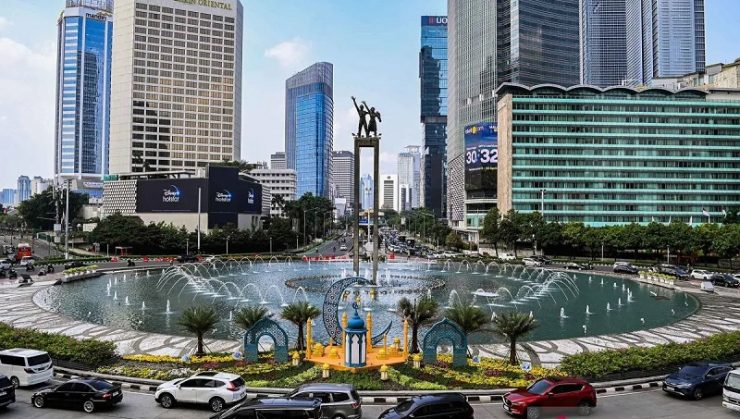ON MONDAY, June 2, 2025, IQAir’s air quality monitoring site reported that Jakarta’s air quality was ranked fifth worldwide. At 5:00 a.m., the Air Quality Index (AQI) in Jakarta was recorded at 140. This figure indicates that air quality is in the unhealthy category for sensitive groups with a high concentration of fine particles (PM2.5).
Meanwhile, the city with the worst air quality in the world is Addis Ababa, Ethiopia, which records an AQI of 164. Dhaka, Bangladesh, holds the second position with an AQI of 160, followed by Kinshasa, Congo, in third with 156.
According to the American Lung Association, the Air Quality Index (AQI) is a system that aims to alert the public when levels of air pollution reach a level that poses a threat to public health.
The AQI is responsible for monitoring the presence of tropospheric ozone, also known as smog, and small particulate matter (PM) originating from various sources. These sources may include smoke, power plants, industrial activity, motor vehicle emissions, and other pollutants. Additionally, AQI encompasses the monitoring of other primary types of air pollutants that are prevalent.
Information about AQI is routinely disseminated through various media outlets, including newspapers, radio broadcasts, television, and websites, on a year-round basis. By monitoring regular air quality information in their respective regions, the community can take preventive action to protect themselves, children, and other vulnerable groups from exposure to air pollution that has the potential to endanger health.
In an effort to address air pollution, the DKI Jakarta Environment Agency (DLH) is considering the adoption of policies from leading global cities, including Paris and Bangkok, as models.
The DKI Jakarta Environment Agency (DLH) is committed to enhancing its air quality monitoring capabilities by expanding the network of air quality monitoring stations (SPKU). Currently, Jakarta has 111 SPKU, which is a substantial increase from the 5 units previously reported. This initiative is a component of the provincial government’s broader strategy to emulate the success of prominent global cities like Bangkok, which boasts approximately 1,000 SPKU, and Paris, with its 400 SPKU.
“In order to enhance our understanding of this issue, it is useful to examine the experiences of other cities. Bangkok has 1,000 Air Quality Monitoring Stations (SPKU), while Paris has 400 SPKU. Currently, Jakarta has 111 SPKU, a significant increase from the previous five units. In the future, we will increase the number to be able to conduct faster and more accurate interventions,” said Asep Kuswanto, Head of DKI Jakarta DLH, in Jakarta on Monday, June 2, 2025.
The incorporation of SPKU in Jakarta is anticipated to expedite and enhance the precision of intervention strategies for addressing air pollution issues. In order to improve air quality systematically, it is essential to disclose data. To ensure the effective design of handling steps, it is essential that data regarding air pollution be submitted transparently.
The DKI Jakarta emphasizes that addressing air pollution cannot be a short-term solution. A sustainable and extraordinary strategy is needed to overcome the problem as a whole. As part of a long-term plan, DLH aims to install 1,000 low-cost air quality sensors to enhance monitoring coverage and improve data accuracy. [sources/photo special]
















